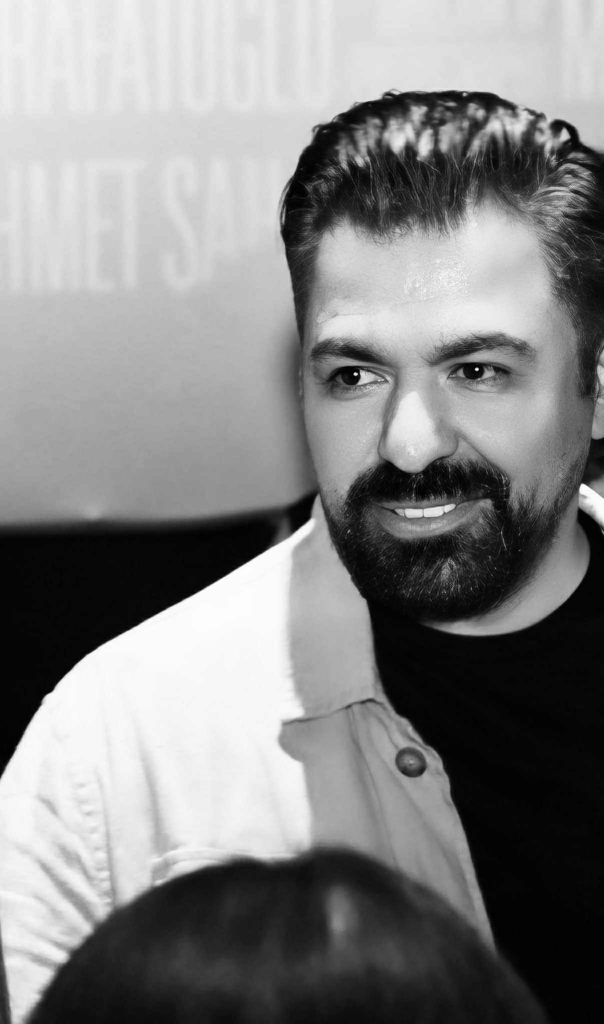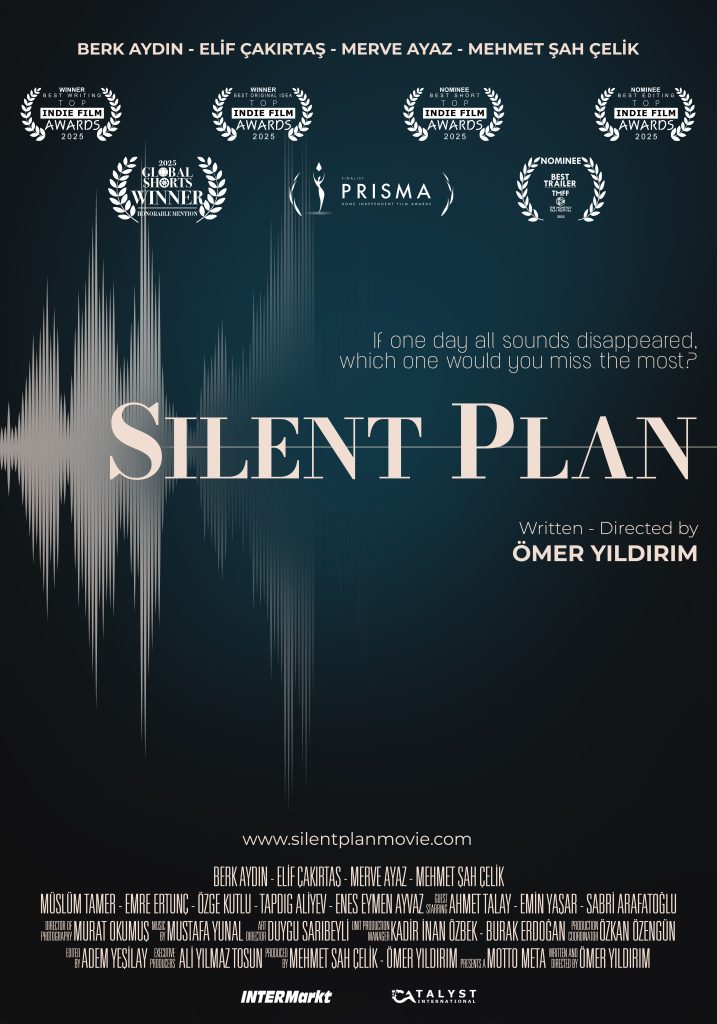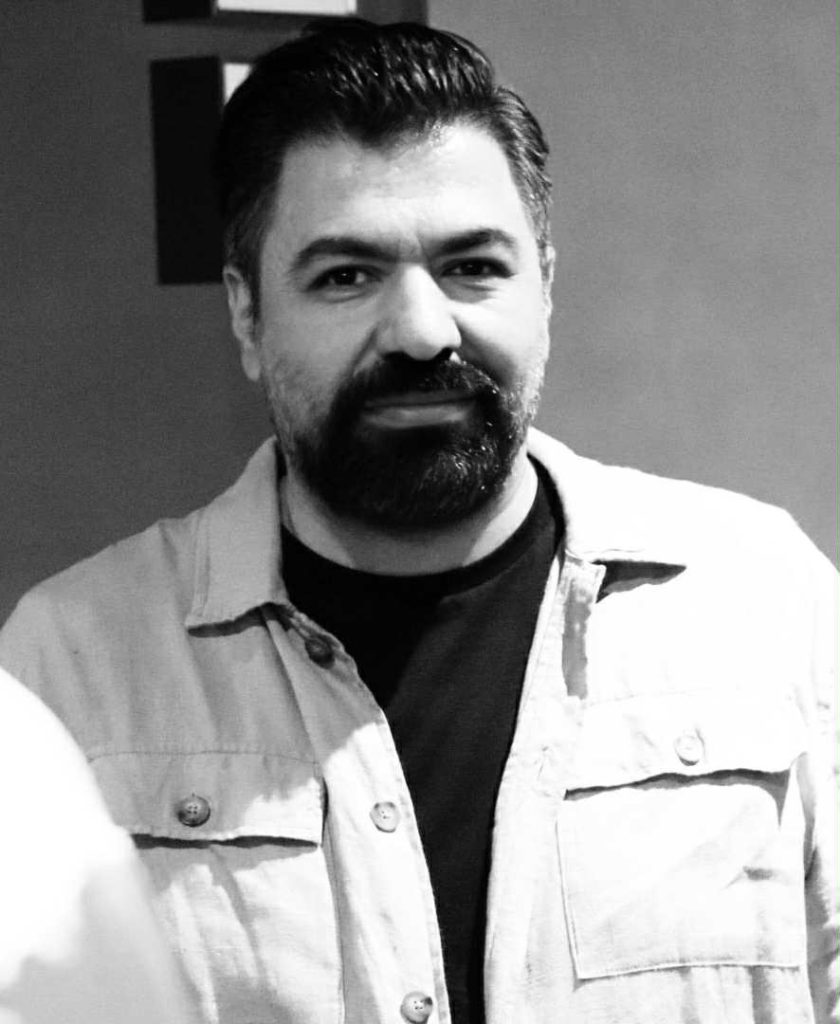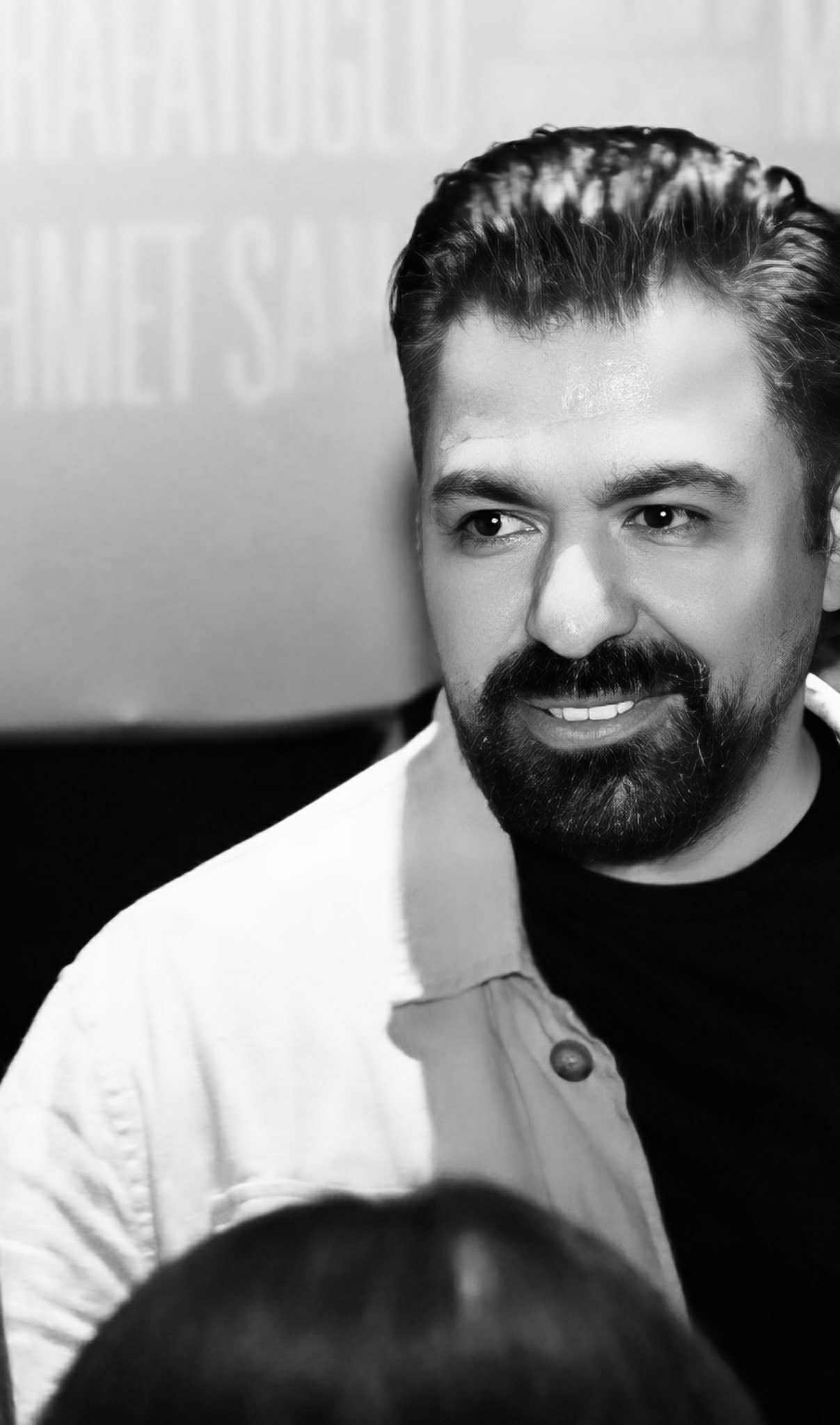
Who is Ömer Yıldırım?
First and foremost, I am a storyteller. I built the academic foundation for this passion in the theatre department of the conservatory, where I completed both my undergraduate and graduate studies. Throughout my career, I have worked as both a writer and a director across a wide spectrum, from the theatre stage to commercial sets, and from the world of animation to cinema. Acting and voice-over work have also been significant parts of this journey. All these different disciplines taught me a fundamental truth about cinema: it is the most powerful storytelling medium.
Currently, driven by the belief that I have many more stories to tell, I am preparing two series and a feature film project for 2026.
Do you remember the exact moment you fell in love with cinema?
For me, that “moment” wasn’t so much a scene on the screen, but rather the captivating ritual that took place in the cinema hall itself. The way people would first come together, queue up, pay a price, and then focus on a giant screen in a collective silence… that whole process has always been incredibly fascinating to me.
What I truly admired was this silent agreement. I realized then that if you have a story and you want people to take it seriously and listen to it until the end, two of the most powerful things you can do are to stage a play or make a film. That was the motivation that made me fall in love with both cinema and theatre, and that’s why I’ve done both.

Tell us about your project “Silent Plan”
“Silent Plan” is, at its core, a story about hope and disappointment. The film follows the journey of four deaf youths—Kemal, Mustafa, Asya, and Leyla—who have lived their entire lives dreaming of hearing the voices of their loved ones. Their most precious treasure is the collection of voice recordings they’ve saved over the years, holding onto the hope of one day being able to hear them.
The story begins when they are selected for a revolutionary hearing aid project that promises to make their dream a reality. However, just as everything is about to come true, the corporation behind the project lies to them to cover up a technical flaw, removing them from the project under the pretext that they were “not suitable candidates.” This is, in fact, a metaphor for how the system silently crushes an individual’s hope to protect its own reputation.
The youths don’t surrender to this injustice and devise a plan to secretly use the devices to hear those voices, even if just for a moment. The film’s finale is built on a tragic irony: the first sound they ever hear in their lives is the warning shot of a security guard. The moment they remove the devices in shock, the long-awaited voices of their loved ones begin to play. The voices are now there, but they cannot hear them.
The film ends with the image of these four young people, closer to hope than ever before, yet simultaneously forever distant from it.
With “Silent Plan,” my aim was to show the conflict between the promises of technology and the fragility of the human spirit, and to illustrate how a dream can be buried in the silence of the system.

Which director inspires you the most?
It’s not just one name that has shaped my vision for the art of cinema; it’s more of a mosaic of directors from different geographies and schools of thought. Christopher Nolan’s genius for complex narratives and Martin Scorsese’s power to project the rawest form of the human soul onto the screen have shown me how far the technical boundaries of storytelling can be pushed.
However, my true inspiration comes from directors beyond the West, those who focus on the most fundamental and universal human emotions. From Iranian cinema, Asghar Farhadi’s ability to create tension from ordinary moral dilemmas and Majid Majidi’s pure and poignant poetry in the simplest of lives have taught me how deep and conscientious an art form cinema can be. And of course, Kim Ki-duk’s courage to avoid dialogue and convey the rawest emotions through the power of silence and visuals has been one of my greatest guides in my own pursuits, particularly in projects like “Silent Plan.”
All of these directors, though they speak in different languages, prove one common thing: cinema is the most universal language invented to understand and portray the human condition.
What do you dislike about the world and what would you change?
What bothers me most about the world is how impatience has become a virtue. We live in an age where we can access everything instantly, but we can’t delve into the depth of anything. We get bored within the first ten minutes of a film, the first thirty seconds of a song. We have become blind to the stories told by the lines on a person’s face or the cracks on the walls of an old building. In short, we skip the stories.
If I had a magical power, this is what I would change: I would give everyone the ability to understand the “backstory” of everything they touch or every person they meet. If you could sit on a park bench and feel the first confession of love made there years ago… If, for just a moment, you could see that the driver honking angrily is actually trying to get to their child in the hospital… That bench would never again be just an “object,” and that driver would never again be just an “obstacle.”
This ability would instantly create empathy, the greatest thing lacking in the world. In fact, cinema is my attempt to use this magical power. Through the camera, I try to show the audience, even if just for two hours, someone else’s story—its depth. Maybe I can’t change the whole world, but if I can change a single person’s perspective for the duration of a film, that is the greatest revolution for me.
How do you imagine cinema in 100 years?
It’s hard to predict what cinema will look like technically in 100 years; perhaps we won’t just watch films—we will “experience” them directly in our minds. Maybe they will evolve into virtual reality adventures where we walk inside the stories.
But what I’m truly curious about is not what the technology will be, but what the soul of cinema will be. I believe that no matter how advanced technology becomes, the fundamental function of cinema will not change; in fact, it will become even more vital: to teach us how to be someone else.
The impatience and superficiality we complain about today might become our greatest humanitarian crisis in 100 years. In a future where everything is personalized and algorithms trap us in our own echo chambers, we will need an art form that forcibly pulls us out of that room and makes us a guest in a complete stranger’s life for two hours—more than ever before.
Perhaps the most revolutionary films in 100 years won’t be the ones with the most expensive effects, but the ones that can make us feel a forgotten emotion—someone else’s pain, joy, or silence—in its purest form. Cinema, as an “empathy machine,” may finally reach its true potential then.
In short, the screens, the glasses, or the lenses may change. But our need to gather in a dark room to witness someone else’s dream will never disappear.
What is your impression of WILD FILMMAKER?
For me, WILD FILMMAKER is not just a magazine, but a community that undertakes a vital mission in today’s cinematic ecosystem. In an era dominated by blockbuster hits and algorithms, the existence of platforms like yours that create space for independent, personal, and artistic voices is like a lighthouse.
Arthouse cinema consists of films that show the courage to tell that “backstory” I mentioned earlier. WILD FILMMAKER is a meeting point where these brave stories find each other. That’s why I find the word “WILD” in your name so meaningful; because these films are the authentic and untamed spirits that the industry cannot domesticate. I am honored that you have featured my own story on such a valuable platform.

